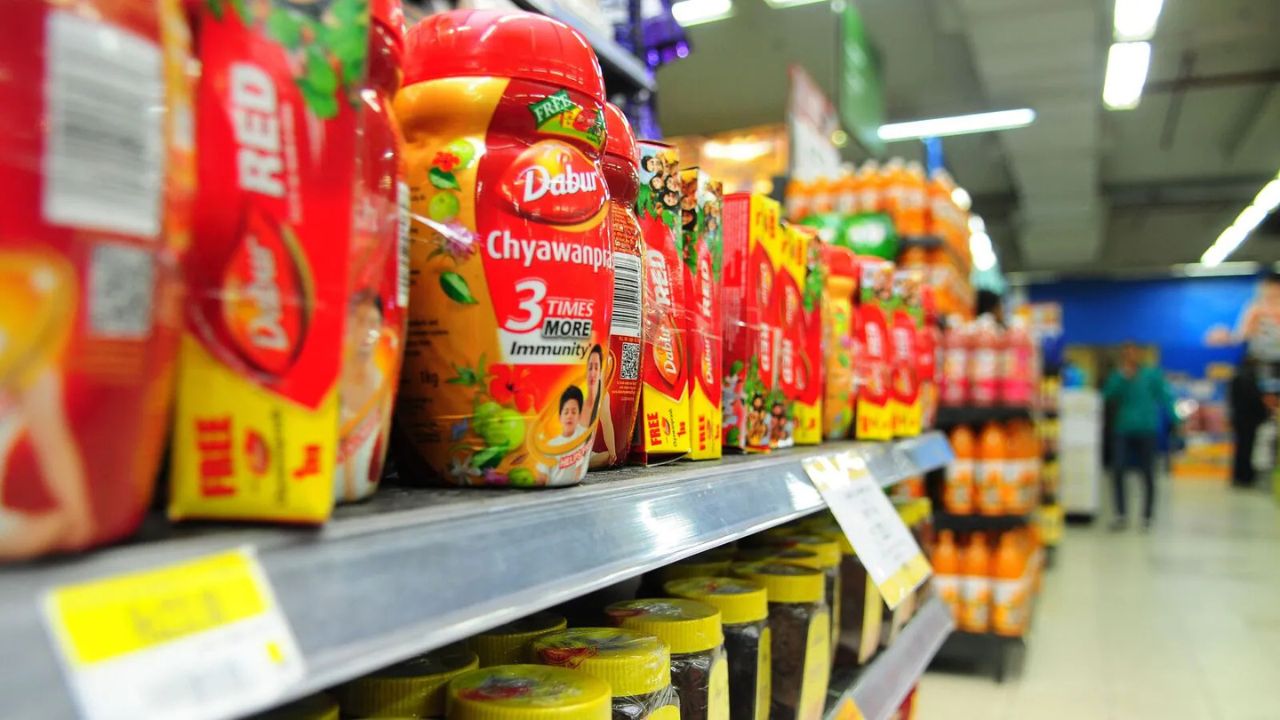Shares of Dabur India Fall to A 52-Week Low Following A Poor Q4 Business Report
Dabur India’s stock dropped more than 7% to a 52-week low following a poor business report for Q4FY25. International markets do well, while domestic demand patterns remain muted. Despite obstacles, the business makes smart investments to achieve long-term success.
Following a poor business report for the quarter ending March 2025 (Q4FY25), Dabur India’s shares fell more than 7% to a 52-week low on April 3. The business said domestic FMCG demand was sluggish, and inflation affected margins.
Diverse Channel and Market Performance:
According to Dabur’s regulatory filing, rural markets grew faster in the fourth quarter than urban markets. General trade continued to face pressure, even as contemporary trade, e-commerce, and rapid commerce channels maintained their upward trend. The domestic performance of the firm was impacted by the generally slow volume trends in the FMCG industry.
All essential markets, including Egypt, Bangladesh, the Middle East, and North Africa (MENA), had impressive results globally. Dabur anticipates strong double-digit growth in constant currency from its global operations, propelled by strategic expansion and resilient demand.
Dabur’s domestic FMCG business encountered challenges despite its impressive performance in its foreign markets. The corporation identified a slowdown in urban demand and the effects of a postponed and shortened winter season as the main factors influencing sales.
The India FMCG market is expected to contract in the mid-single digits, despite the company’s food division, which includes brands like “Homemade” and “Badshah,” continuing to record double-digit growth. As a result, Dabur’s consolidated revenue for Q4FY25 is anticipated to not change from the prior year.
Additionally, Dabur anticipates that operating profit margins would decline by around 150–175 basis points annually. The corporation blamed operating deleverage and inflationary pressures for this drop. Despite these short-term setbacks, Dabur is committed to long-term profitable development through improved market strategies, brand investments, and operational improvements.
“Despite the present demand challenges, we are still dedicated to achieving profitable growth. We will be able to accomplish this goal through internal initiatives, including investing in brand development, improving go-to-market tactics, and boosting operational effectiveness. Additionally, we believe that the incentives included in the most recent Union budget would boost consumption and help the FMCG industry recover, which Dabur is well-positioned to benefit from,” the filing stated.
Stock Performance and Market Reaction:
Dabur’s shares fell 7.2% to ₹459.65 after the business report, the lowest level in 52 weeks. The 52-week high of ₹672, set in September 2024, is more than 31% below the FMCG giant. Investor concerns about demand patterns and margin pressures have been reflected in the stock’s 7% decline over the last year.
The stock has fluctuated during the past few months. Even though it increased 4.5% in January, it fell 7% in February and recovered 2.6% in March. The most recent Purchase suggests that investors are again worried about the company’s chances for short-term growth.







